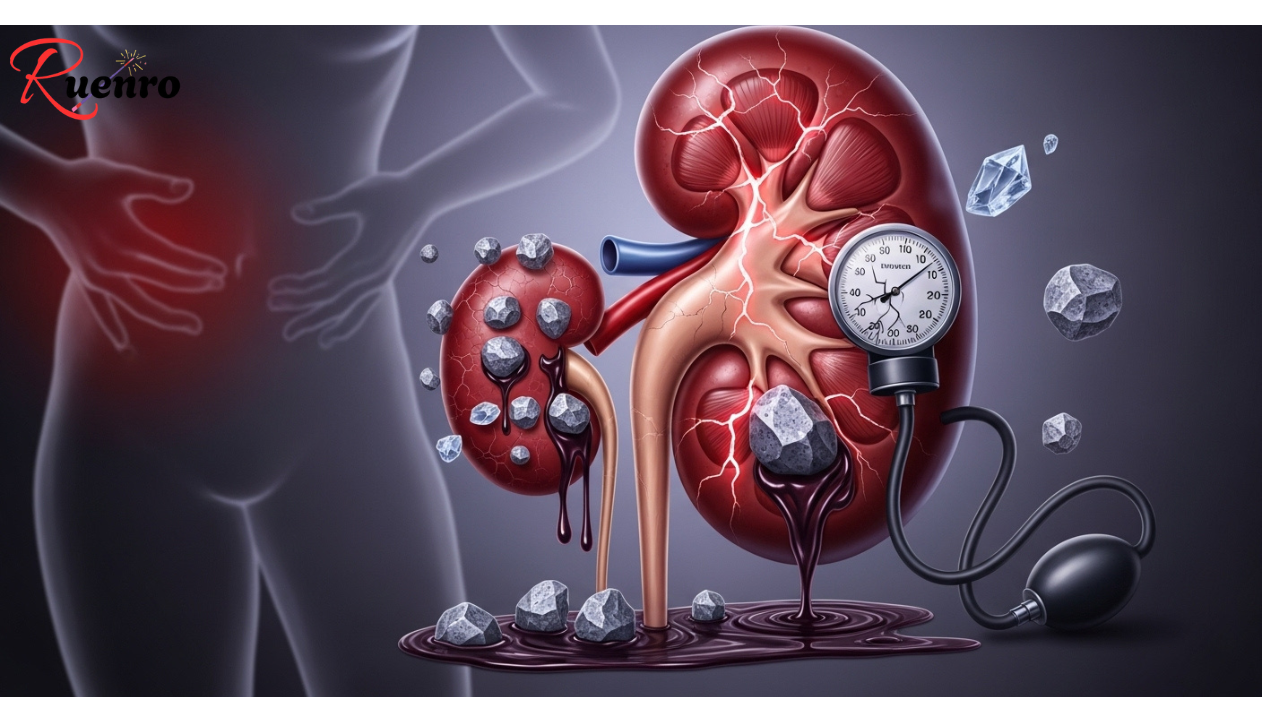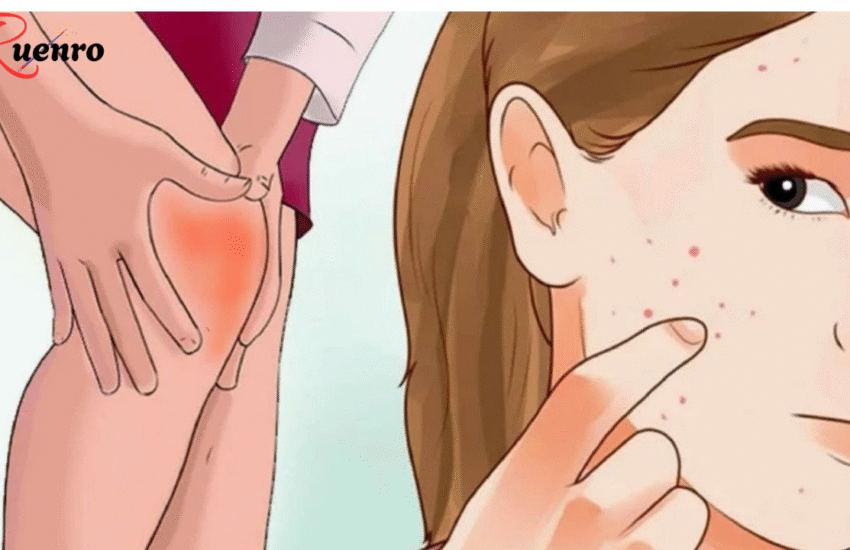If Your Kidney Is in Danger, the Body Will Give You These 7 Signs
Your kidneys are small but mighty organs — two bean-shaped filters that work around the clock to clean your blood, remove waste, and balance fluids in your body. Every day, they filter nearly 200 liters of blood and produce about 2 liters of urine.
When your kidneys aren’t functioning properly, toxins and waste begin to build up in your system — and that can quietly damage other organs. The scary part? Kidney problems often show no symptoms until the condition is advanced.
That’s why it’s crucial to recognize the early warning signs your body gives when your kidneys are in trouble. Catching these signals early can make a huge difference in protecting your health and preventing kidney disease.
Here are 7 important signs that your kidneys may be in danger — and what to do if you notice them.
🚨 1. Changes in Urination
Your kidneys’ main job is to make urine — so when something’s wrong, your bathroom habits are often the first to change.
Warning Signs:
- Urinating more frequently, especially at night
- Very little urine or difficulty urinating
- Foamy, bubbly, or dark-colored urine
- Blood in the urine
- A burning sensation when urinating
These can all indicate that your kidneys are struggling to filter waste properly. Sometimes, they can also be signs of urinary tract infections (UTIs) or kidney stones — both of which can lead to kidney damage if untreated.
What to Do:
Drink more water, avoid caffeine and salt, and schedule a medical check-up to test your kidney function through a urinalysis or blood test (creatinine and eGFR).
😴 2. Constant Fatigue and Weakness
When kidneys don’t filter toxins efficiently, waste builds up in the bloodstream. This leads to tiredness, low energy, and difficulty concentrating.
Additionally, damaged kidneys can’t produce enough erythropoietin — a hormone that tells your body to make red blood cells. Fewer red blood cells mean less oxygen reaching your muscles and brain, which leads to anemia and chronic fatigue.
Warning Signs:
- Feeling exhausted even after sleeping
- Shortness of breath
- Dizziness or weakness
- Pale skin
What to Do:
Eat iron-rich foods (like spinach, beans, and red meat), stay hydrated, and get tested for anemia or kidney function issues if the fatigue persists.
💧 3. Swelling in Legs, Ankles, or Face
If your kidneys can’t remove excess sodium and fluids effectively, fluid begins to accumulate in tissues — causing visible swelling (edema).
Common Areas of Swelling:
- Feet and ankles
- Hands and fingers
- Around the eyes or face
- Abdomen
This swelling can be mild at first but may worsen over time, especially after long periods of sitting or standing.
What to Do:
- Reduce salt intake
- Stay active to improve circulation
- Elevate swollen legs
- Speak with your doctor — fluid retention could be a sign of kidney, liver, or heart issues.
😣 4. Persistent Lower Back Pain
Kidneys sit on either side of your spine, just below your ribcage. Pain in this area — especially on one side — can indicate a kidney infection, stones, or inflammation.
Warning Signs:
- Sharp pain under the ribs or in the back
- Pain radiating to the groin or lower abdomen
- Fever, chills, or nausea (if infection is present)
Note: Back pain caused by kidney problems often feels deeper and not related to muscle movement.
What to Do:
If the pain is severe, constant, or comes with fever or changes in urine, seek medical attention immediately. Early treatment can prevent complications or permanent kidney damage.
🧊 5. Puffy Eyes and Dark Circles
Do your eyes look swollen or puffy, especially in the morning? That could be more than lack of sleep — it can be an early sign of protein leakage in your urine.
When kidneys are damaged, they allow protein (especially albumin) to escape from the blood into the urine. This loss of protein causes puffiness around the eyes.
What to Do:
Ask your doctor for a urine protein test (urine albumin-to-creatinine ratio). In the meantime:
- Drink enough water
- Limit salt and processed foods
- Get enough sleep and manage stress
🥴 6. Metallic Taste in the Mouth and Bad Breath
When your kidneys aren’t filtering toxins properly, urea builds up in the blood. This urea can break down into ammonia in your saliva, leading to:
- A metallic taste in your mouth
- Bad breath (often described as “urine-like” or chemical-smelling)
- Loss of appetite or aversion to certain foods
This condition is known as uremic fetor, and it’s a warning sign of declining kidney function.
What to Do:
Stay hydrated and avoid smoking or alcohol, which can worsen the problem. But if the metallic taste persists, schedule a kidney function test as soon as possible.
🧍♀️ 7. Skin Problems and Itching
When your kidneys fail to eliminate toxins efficiently, waste builds up in the blood and can cause dryness, rashes, and itching that no cream seems to relieve.
This happens because of high phosphorus levels and the accumulation of waste products that irritate the skin.
Warning Signs:
- Persistent itching (especially on the back, arms, or legs)
- Dry, flaky, or yellowish skin
- Small white bumps or rashes
What to Do:
- Stay hydrated
- Avoid hot showers and harsh soaps
- Moisturize with fragrance-free lotion
- Ask your doctor to check your phosphate and urea levels
⚠️ Other Subtle Signs to Watch For
Sometimes, kidney problems sneak up silently. Keep an eye out for:
- Unexplained weight loss or loss of appetite
- Nausea and vomiting
- Muscle cramps (especially at night)
- High blood pressure
- Trouble sleeping
Even mild symptoms can be meaningful when they occur together or persist for several weeks.
🩸 Protecting Your Kidneys: Prevention Tips
You can lower your risk of kidney problems — or slow their progression — with these simple daily habits:
✅ Stay hydrated – Drink at least 6–8 glasses of water per day.
✅ Limit salt – Too much sodium raises blood pressure and strains the kidneys.
✅ Eat a balanced diet – Focus on fruits, vegetables, whole grains, and lean proteins.
✅ Avoid excessive painkillers – Overuse of NSAIDs (like ibuprofen) can damage kidneys.
✅ Don’t smoke – Smoking restricts blood flow to the kidneys.
✅ Monitor blood pressure and blood sugar – Diabetes and hypertension are leading causes of kidney disease.
✅ Exercise regularly – It boosts circulation and supports overall kidney health.
💬 When to See a Doctor
If you experience two or more of the symptoms listed above, don’t ignore them. Your doctor can run simple tests, such as:
- Urinalysis: Checks for protein, blood, and waste levels
- Creatinine test: Measures how well your kidneys are filtering waste
- eGFR (estimated glomerular filtration rate): Indicates your kidney function
Early diagnosis means early treatment — and the sooner kidney issues are addressed, the more likely you can prevent long-term damage.
🌿 Final Thoughts
Your kidneys play a vital role in keeping your body clean and balanced — but they rarely “complain” until serious problems arise. Paying attention to your body’s subtle warning signs could literally save your life.
If you notice changes in urination, swelling, fatigue, or other unusual symptoms, don’t brush them off. Listen to your body — it’s trying to tell you something.
Healthy kidneys mean a healthy you. Take care of them through good hydration, balanced nutrition, and regular medical check-ups — because prevention is always better than cure.



